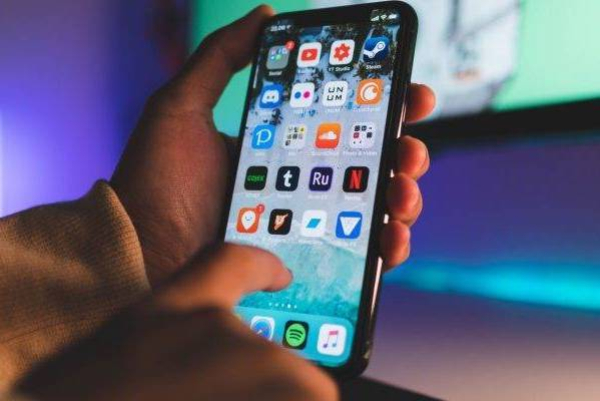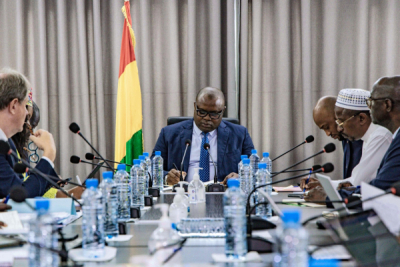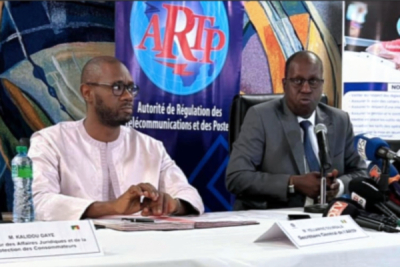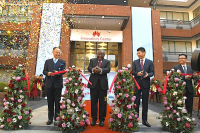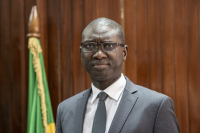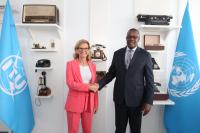
News (1790)
The Zambian government aims to pursue a digital path and enhance trade partnerships, emphasizing the need for preparedness in services and cross-border interactions.
A delegation from Zambia's digital economy sector arrived in Nigeria, on July 10, to study the country's digital economy model through a visit of the National Information Technology Development Agency (NITDA).
Led by Austin Sichinga, a director from the Zambia Information and Communication Technology Authority (ZICTA), the delegation aims to learn from Nigeria's successful approach and adapt it to their digital transformation efforts.
“NITDA has leapfrogged most African institutions that are into technology development in the continent. We have seen and acknowledged its development efforts in supporting ICT start-ups, and imparting relevant ICT skills on young minds,” Mr. Sichinga said.
During the visit, the Zambian team will study “Nigeria’s IT regulatory instruments, policy implementation, Public Key Infrastructure, and cyber security, and explore NITDA’s relationship with government agencies and stakeholders in the digital economy sector,” NITDA explains on Twitter.
NITDA's Director General, Kashifu Inuwa, commended the Zambian government's initiative to study the Nigerian model, highlighting the importance of collaboration among African nations to develop effective digital strategies. “We need to work as a team, so as Africans, I think this is high time for us to come together; come up with our digital strategy because digital is beyond boundaries, it is borderless,” he said.
The Zambian delegation's visit to NITDA follows visits from Ghana, Gambia, and Kenya, reflecting the agency's reputation for driving technological development. NITDA plans to share its expertise through a playbook to promote a strong digital economy across Africa.
NITDA is a government body that implements Nigeria's IT policy and coordinates IT development. The agency's initiatives, such as the National Centre for Artificial Intelligence and Robotics (NCAIR) and the Office for Nigerian Digital Innovation (ONDI), support startups and contribute to job creation and economic growth.
Hikmatu Bilali
Although digital advancements present opportunities for growth and development, they also unfortunately provide a platform for criminals to exploit, undermining their positive potential.
In Ghana, 422 individuals involved in illegal digital lending were arrested in a joint operation recently carried out by the Cyber Security Authority (CSA), the Bank of Ghana (BoG), and the Economic Organised Crime Office (EOCO). They are accused of cyberbullying, extortion, and abuse of customer data. The operation was carried out across three locations in the Greater Accra Region on July 10.
The arrests were made in the framework of a joint investigation, part of the Joint Cybersecurity Committee (JCC) activities, which resulted in the apprehension of 419 Ghanaians, one Chinese, one Pakistani, and one Indian suspect. Seized items included 654 mobile phones, 22 laptops, and 800 SIM cards.
At a press conference, the three agencies involved in the operation indicated that the joint investigation aims to enforce relevant cybersecurity, banking, and crime prevention laws.
The CSA had received over 270 reports of cyberbullying, extortion, and other illicit activities since December 2022. Following their investigations, the Cybersecurity authority identified and shared findings on 150 unlicensed applications involved in illegal practices.
EOCO, responsible for safeguarding financial market integrity, formed a joint technical task force with BoG and CSA to target unlicensed digital loan platforms. COP Maame Yaa Tiwaa Addo-Danquah (Executive Director of EOCO) warned the public against engaging with illegal financial entities online, affirming EOCO’s commitment to enforcing financial market regulations.
The collaborative effort is a significant stride in Ghana's fight against cybercrime and aims to protect citizens from fraudulent lending practices. By fostering a secure digital environment and upholding financial market integrity, authorities are working to safeguard the public's financial well-being.
Hikmatu Bilali
Digital technology is quite important for the Guinean government. The country already has many digital projects underway, and others waiting for funding to be launched.
Guinea's Minister of Posts, Telecommunications, and the Digital Economy, Ousmane Gaoual Diallo, met with a delegation from the World Bank led by Franz Drees-Gross, the institution's regional director for infrastructure, on July 18.
The Minister of Digital Affairs sought the support of the global financial institution for the implementation of several digital projects in Guinea, namely the West Africa Digital Integration Project (WARDIP), e-procurement, covering white areas, stimulating competition in telecoms, launching the national telecoms operator Guinea Telecom, and landing a second submarine cable.
Franz Dress-Gross showed a lot of interest in all of these projects, and new interviews were scheduled to expedite ongoing projects. Before this meeting, Ousmane Diagana, the World Bank's Vice President for West and Central Africa, announced the World Bank's intention to increase its funding in the digital economy in Guinea.
"The digital economy is a factor that can be a development accelerator, but also an element to help equalize access opportunities for all citizens to several services. We plan to significantly increase our funding in these areas. Better yet, ensure that existing programs, which are numerous in these sectors, can be executed more quickly," Diagana stated on Monday, July 17, following a working session with Guinea's Prime Minister, Bernard Goumou (pictured in the center).
The talks were held during a two-day visit to Guinea by a World Bank delegation led by Ousmane Diagana. Several topics were discussed during the visit, including job creation, human capital strengthening, and climate resilience consolidation.
Samira Njoya
5G will soon be deployed in Senegal. Sonatel recently won the bid to commercialize the technology in the country.
Senegal’s telecom regulator, the ARTP, has provisionally awarded the 5G license to the Sonatel group through its commercial brand Orange. Abdou Karim Sall, the director general of the watchdog, announced on July 17, 2023, during a press conference in Dakar.
L' artp a attribué la 5G à la Sonatel. L'opérateur historique a déboursé 34,5 milliards de CFA pour avoir la technologie de la cinquième génération(5G). L’Autorité de Régulation des Télécommunications et Postes (ARTP) avait lancé la procédure d’appel à candidature pour… pic.twitter.com/pZo1TlpdMf
— A.P.S - Sénégal (@APS_Senegal) July 17, 2023
According to the ARTP’s boss, Sonatel paid CFA34.5 billion (€52.7 million) for the technology. "The main goal is to allow all operators who wish to have a 5G license for the great benefit of users [...] We had set a reserve price of 19.5 billion FCFA. When we proceeded to the counting, we retained that of Sonatel since its offer was compliant," said Abdou Karim Sall.
The ARTP issued a call for bids on May 31 for operators interested in deploying the technology in Senegal. Three operators – Free, Sonatel, and Expresso – submitted bids.
Following the bidding, Free and Expresso were taken out because they did not respect the clause of the reserve price set at CFA19.5 billion, leaving Sonatel as the winner.
In the coming days, Sonatel will have to sign the concession agreement and specifications alongside the ministries in charge of Telecommunications and Finance. Afterwards, the President of Senegal will issue a decree and the ARTP will give its final approval for the official deployment of the 5G technology.
Deploying the technology in Senegal will enable Sonatel to meet the population’s growing demand for high-speed connectivity and new digital consumption modes, influenced notably by Covid-19.
Samira Njoya
Dakar’s Cheikh Anta Diop University (UCAD) switched to online learning in mid-June. To strengthen its offering, the university is signing partnerships and multiplying efforts to meet the needs of thousands of students.
Dakar’s Cheikh Anta Diop University (UCAD) and the National Telecommunications Company of Senegal (SONATEL) signed a partnership agreement last Friday, July 14. The move is to launch the "Pass UCAD" program, whose goal is to allow UCAD’s students and teachers to access the university’s dedicated online learning platform for free.
SONATEL’s Managing Director, Sékou Dramé (picture on the right), announced the establishment of a platform that allows students to continue classes online. "From next week, it will be implemented. This platform will allow students to identify themselves and access this specific 'Pass UCAD' issued for students, which will allow them to connect to the online teaching platform set up by the university for free until October 31," he said.
A month ago, the Senegalese government decided to adopt online education in the country's public universities amidst violent protests that broke out after opposition leader Ousmane Sonko was convicted. Many universities’ facilities were destroyed during the protests; these include six UCAD faculties.
The new partnership with SONATEL will support education and promote internet access for UCAD students. It will also allow students to benefit from educational resources and online research, as well as strengthen their digital skills, and prepare them for the digital future.
Samira Njoya
The Angolan government has been taking many steps to reform its administration through digitalization. To speed up this process, the country is now teaming up with major tech actors.
The Administrative Modernization Institute (IMA), an auxiliary body of the Angolan Republic's presidency responsible for public administration modernization, and Dell Technologies, an American company providing tech solutions, services, and support, signed a strategic cooperation agreement in Dubai on Friday, July 14. The partnership aims to promote digital governance in Angola.
"The memorandum of understanding between the IMA and Dell Technologies establishes comprehensive cooperation in the field of digital governance. It anticipates the exchange of experiences, knowledge, and best practices, with a focus on the quality of public services, digitization of the economy, improvement of the business environment, support for entrepreneurship, training, and creation of human capital skills," the IMA wrote in a statement.
Last May, IMA took part in the "Dell Technologies World" conference. Organized by Dell, the conference aimed to accelerate digital growth and technological development in the world. The new deal aligns with the Angolan government's ambition to speed up digital growth as well, locally, and with the Angolan people, with various online government services.
Last February, Luanda announced an investment of $89 million to build its national cloud infrastructure by 2024. The digital infrastructure, built across the government’s centers, is expected to provide over 80 public services.
The partnership with Dell will support the ongoing digitization process of public administration in Angola. It should also allow the country to boost its e-government development score. On the UN’s 2022 e-Government Development Index, Angola ranked 157th out of 193 countries, placing it among countries with a medium level of electronic administration development.
South Africa is taking a significant step towards embracing the digital revolution, leveraging Huawei's expertise, and unlocking the potential of advanced technologies for economic development and societal progress
South African President Cyril Ramaphosa inaugurated, on July 13, the Huawei Innovation Centre in Woodmead, Johannesburg. The cutting-edge facility, established by Huawei South Africa, aims to foster joint innovation, collaborate with local partners and developers, and showcase advanced digital technologies.
President Ramaphosa praised the Innovation Centre, calling it an impressive hub for technological breakthroughs. He highlighted its crucial role in propelling South Africa and the wider African continent into the Fourth Industrial Revolution, with technologies like 5G, Cloud, and AI being showcased at the centre.
The President emphasized the government's commitment to digital transformation, expressing hope that the Innovation Centre would spur the launch of local ICT enterprises and create employment opportunities. He acknowledged the significance of digital technologies in achieving national development goals and commended Huawei's confidence in the South African economy.
President Ramaphosa also acknowledged the role of digital technologies in enhancing sectors such as mining and transportation. He referenced the successful launch of the first 5G coal mine in South Africa, facilitated by Huawei's partnership with industry stakeholders and telecom partners, as an example of the company's contribution to the country's economic potential. “The application of digital technologies to improve production processes spans a broad range of economic sectors from mining to ports to transportation and others,” he said.
Furthermore, he emphasized the importance of knowledge transfer, skills development, and the growth of small and medium-sized enterprises (SMEs), and applauded Huawei's efforts in cultivating local digital talent through initiatives like the LEAP digital talent program, ICT academies, and Tech4All-DigiSchool projects. These initiatives align with the government's vision of empowering the youth and enabling their participation in the digital economy.
The Chinese Ambassador to South Africa, HE Chen Xiaodong, highlighted the significance of the Huawei Innovation Centre as a symbol of South Africa-China cooperation. He emphasized China's commitment to supporting South Africa in accelerating 5G deployment and embracing the Fourth Industrial Revolution.
Leo Chen, President of Huawei Sub-Saharan Africa, commended South Africa's strong vision for its digital economy and its role as a continental and global role model for 5G deployment and industrial digital transformation. Chen reaffirmed Huawei's commitment to supporting South Africa's ICT infrastructure development and industry digitization through the introduction of the latest technologies. He also emphasized the company's dedication to training young South Africans, enabling their participation and benefit from the digital economy.
The inauguration ceremony was attended by various dignitaries, including Minister Stella Ndabeni Abrahams (Small Business Development) and Minister Sindisiwe Chikunga (Transport), along with representatives from government departments. Their presence underscored the government's endorsement and support for the Huawei Innovation Centre and its potential to drive the country's digital agenda.
With the inauguration of the Huawei Innovation Centre, South Africa takes a significant step towards embracing the digital revolution, leveraging Huawei's expertise, and unlocking the potential of advanced technologies for economic development and societal progress.
Hikmatu Bilali
Most African countries are dematerializing their administrative services to make their people's daily lives easier. Governments in these countries are now taking further steps to speed up this process.
The government of Senegal has just validated its 2023-2027 digitalization plan for the judiciary sector. The authorities did so during a workshop held on July 13.
The project should cost $13.7 million and result in the establishment of a digital public service of justice that will benefit all of the sector’s actors and users.
"The ownership and implementation of the digital plan for justice by all actors will bring about a revolution in the functioning of justice by allowing faster decisions, simplifying procedures and steps with a more transparent dimension of the procedures. In addition, it will enable users to reduce travel, and magistrates and ministry staff to improve daily work," said Ismaïla Madior Fall, Senegalese Minister of Justice.
In 2016, Senegal adopted its National Digital strategy which aims to digitize approximately 700 administrative procedures. Many investments have been made to ensure this digital transformation in various sectors of activity. Last June, Dakar released $49.8 million as part of the National Program for the Digitalization of the Health System.
For the second half of this year, Ismaïla Madior Fall explained that the project will focus among other things "on the digitization of the process for issuing legal documents and criminal records, the collection of fines, electronic archiving, naturalization, electronic mail management".
Furthermore, the project aims to adapt the texts to dematerialization, to make the working environment suitable; to give citizens remote access to judicial services by dematerializing all judicial procedures; to operationalize alternative justice; to protect children, or to have management tools for the judicial sector.
Adoni Conrad Quenum
Despite having made significant progress in various areas in the past years, Rwanda still faces several issues, such as youth unemployment. Kigali, however, is taking many steps to tackle this specific challenge and help the youth to actively, and productively, contribute to the economy, via the digital sector.
The Rwandan government recently teamed up with the International Labor Organization (ILO) to start a development cooperation project. In a statement dated July 12, 2023, the ILO announced the partnership.
According to the statement, the project will promote youth employment, through digital technologies.
📢Good news for young Rwandans.@ILOAfrica and #Rwanda have announced a new development cooperation project designed to promote #youthemployment in the #digitaleconomy.
— ILO Africa (@ILOAfrica) July 12, 2023
More infos 👇👇https://t.co/0LD9jsA70f via @ILO pic.twitter.com/a8eRuj8s1T
"This project is an exciting milestone in our ongoing efforts to increase investment in the digital economy and uplift Africa's young workforce. It will serve as a new model to generate practical and effective results that will inspire other countries. I am delighted with the potential of this project to serve as a global best practice," said Cynthia Samuel-Olonjuwon, ILO Assistant Director-General and Regional Director for Africa.
Precisely, the project targets young people aged between 16 and 30, in Kigali and secondary towns. It will support job creation and entrepreneurial ventures in the digital economy; help boost youth’s digital skills; and improve public and private employment services provided to the youth.
With a €4 million budget, the project aligns with the Rwanda 2050 Vision, the Rwandan Transformation Strategy 1, the National Skills Development and Employment Promotion Strategy (NSDEPS) 2019-2024, and the Decent Work Country Program for Rwanda.
Once launched, the project will introduce new digital labor market interventions to create new jobs, reinforce existing programs to promote digital skills and stimulate demand for digital services among micro, small, and medium-sized enterprises.
Samira Njoya
Tech is a pillar of Kenya's socio-economic development strategy. Eager to digitize all the country's key sectors, Nairobi is looking for international partners.
The Kenyan Minister of Information, Communications, and Digital Economy, Eliud Owalo (photo, right), recently showcased his country's telecommunications and digital assets in Geneva, Switzerland.
On July 11, speaking at the International Telecommunication Union (ITU) 2023 Council meeting, Owalo noted that Kenya's digital network is ahead of most African countries. He then invited global development partners and investors to support the country’s ongoing digitization program.
"Kenya is keen on partnerships that will equip our youth with digital skills for digital jobs and also develop our ICT infrastructure, using affordable digital devices and finding jobs for young Kenyans in cyberspace," the Kenyan ICT ministry said on Twitter.
1/2 The Cabinet Secretary for Information, Communications and the Digital Economy, Mr Eliud Owalo today was hosted by the Secretary-General of the International Telecommunications Union (ITU), Ms. Doreen Bogdan-Martin, at the ITU Headquarters in Geneva, Switzerland. pic.twitter.com/kVs1HFJhQg
— Ministry of Info, Comms & The Digital Economy KE (@MoICTKenya) July 12, 2023
Over 5,000 government services have been dematerialized since Kenya started its digitization a few years ago; fiber optics are being deployed throughout the country, and public Wi-Fi access points have already been installed in several localities.
While lauding the achievements, Eliud Owalo said there’s still a lot to do. Indeed, if 98% of the Kenyan population has access to mobile phones and broadband services, around 1.7 million people still don’t. Also, about 45% of the population still doesn’t have access to smart devices in the country.
To meet this challenge, the Kenyan government is counting on its various international partners, including the US, with whom the Kenyan delegation has begun talks in Geneva.
1/3 The Cabinet Secretary for Information, Communications and the Digital Economy, Mr Eliud Owalo today held consultations with the leader of the United States Delegation to the 2023 ITU Council Meeting in Geneva, Ambassador at Large, H. E. Nathaniel C Flick. pic.twitter.com/h5Mllmhbdr
— Ministry of Info, Comms & The Digital Economy KE (@MoICTKenya) July 12, 2023
Samira Njoya
More...
Adopting digital tools continues to prove to be the way forward to development. The Ghana police service is utilizing technology to solve many social issues.
During a recent visit to police stations in Accra, led by IGP Dr. George Akuffo Dampare, the Ghana Police Service (GPS) announced the provision of 150 body cameras to enhance professionalism and strengthen investigative capabilities. The stations that were visited during the tour on July 12 included Tesano Divisional, Achimota District, and Mile '7' police stations.
The body cameras have been assigned to officers of the Visibility Unit in Accra, according to ACP Grace Ansah Akrofi, the Director of Police Public Affairs.
Body cameras are wearable devices used by law enforcement to record events involving officers. ACP Akrofi mentioned their successful use during recent by-elections in Assin North and Kumawu, aiding police operations.
IGP Dr. Dampare emphasized the need to protect the police service's image and support its transformation agenda. He commended officers for their dedication and assured them of continuous support, including logistics and welfare promotion.
The introduction of body cameras and specialized units demonstrates the GPS's commitment to professionalism and improved law enforcement. These technological advancements, coupled with ongoing support and welfare measures, will further strengthen the police service's ability to protect and serve Ghana's citizens.
In 2019, the Ghana Police Service took delivery of 250 body cameras. This was the first batch of 3,000 pieces expected to be delivered by the close of that year as part of efforts to enhance police transparency and accountability.
As part of a GH¢800 million retooling budget for the Ghana Police Service, President Nana Addo Dankwa Akufo-Addo announced the allocation of equipment and vehicles during his State of the Nation Address on February 8, 2018.
Hikmatu Bilali
Smart Africa and Amazon Web Services (AWS) have teamed up to equip youths in several African countries with digital skills. The two partners made the announcement on July 7, 2023.
Specifically, AWS and the pan-African IT-focused organization will deploy the AWS re/Start program via the Smart Africa Digital Academy (SADA), Smart Africa’s capacity-building arm. Initially, the program will cover Ghana, Congo, Kenya, Rwanda, Côte d’Ivoire, and the Democratic Republic of Congo. The program is fully free.
#SADA is excited to lead @RealSmartAfrica’s collaborative initiative with @awscloud aimed at developing #digitalskills across #Africa. Recently launched in #Ghana, this free, cohort-based program will initially span six countries. Read more: https://t.co/OwlvBYuSY9 pic.twitter.com/k8FB9TgkAT
— Smart Africa Digital Academy (@SADASmartAfrica) July 10, 2023
The initiative, according to Lacina Koné, MD of Smart Africa, “aligns with SADA’s goal of creating an environment conducive to the flourishing of our youth in the digital technology ecosystem in Africa, especially on the module dedicated to digital experts.”
Since it started operating in August 2020, SADA has trained over 3,500 decision-makers and policy officials in over 30 countries going through their digital transformation. AWS's support will therefore be useful in training more and progressing toward its goal of reaching over 22,000 trained beneficiaries by the end of 2023.
The AWS re/Start program will offer skill development and employment opportunities for young people in the field of cloud on AWS. The 12-week program includes learning based on real scenarios, hands-on labs, and coursework. It is supported by professional mentors and accredited trainers, as well as interview coaching to prepare for a career in cloud computing.
Ultimately, the program will create an inclusive and diverse pool of new talents in the cloud field in Sub-Saharan Africa by engaging unemployed or underemployed youth who might otherwise not have had access to this career path. The goal is to raise the international profile of Sub-Saharan Africa as a hub for specialized digital and technical talents.
Samira Njoya
The digital revolution in Africa signifies a transformative opportunity to harness the continent's abundant human resources. This marks a significant milestone in its technological progress and economic prosperity.
A group of more than 10 leading tech companies in Ethiopia united, on July 10, to establish the Ethiopian Outsourcing Association. The International Trade Centre (ITC), through the Netherlands Trust Fund V Ethiopia Tech project, supported the association's creation by providing international expertise.
Wondwesen Zewdie, president of the association and co-founder of R & D Ethiopia, expressed the members' passion for this initiative. R & D Ethiopia, with over 120 employees supporting global companies, is just the beginning of a vision to bring major changes through outsourcing. ‘We can see that it’s going to create an immense amount of jobs, and not just jobs but dignified jobs,’ he commented.
The association resolves a challenge faced by Ethiopian outsourcing companies, as each had to register based on specific work types. Tadios Tefera, Chief Technology Officer of MMCY Tech, emphasized that the association gives them more influence in shaping policies and addressing issues faced by the industry. Previously, individual efforts did not have the same impact as a collective voice.
The association's strategy focuses on creating a conducive environment for outsourcing within Ethiopia by collaborating with the government to develop favorable policies. They also aim to market Ethiopia as an outsourcing destination to attract international businesses.
Inspired by India's success, Ethiopian outsourcing companies see the potential to generate substantial job opportunities, particularly for the country's youth.
The formation of the association marks a pivotal moment in Ethiopia's technological advancement and economic growth. It empowers individuals, generates employment opportunities, and positions Ethiopia as a prominent player in the global tech industry.
Hikmatu Bilali
As governments worldwide embrace digitalization to boost their economies, the lack of access to smartphones poses a significant barrier to achieving digital inclusion. The government's initiative enables every Kenyan to actively participate in the digital revolution, paving the way for an inclusive society.
Kenya will manufacture affordable smartphones for its citizens, ICT Cabinet Secretary Eliud Owalo revealed last Wednesday, July 5. Speaking at the inauguration of digital laboratories at Maseno School, the government official announced that the feasibility studies of the project were completed.
The project aims to bridge the digital divide by providing equal access to digital services and opportunities, regardless of economic status. "We will soon release our first batch of locally assembled smartphones," said Secretary Owalo. The goal is to revolutionize access to digital platforms and government services, crucial in today's technology-driven society.
ICT Cabinet Secretary Eliud Owalo says Kenya will start producing smartphones worth about $40. pic.twitter.com/4fQ6urxOZR
— The Standard Digital (@StandardKenya) July 5, 2023
Recognizing that high smartphone costs hinder digital inclusion, the government is committed to producing affordable devices. Priced at approximately $40 (Sh. 5,516), the smartphones will enable even those with limited means to join the digital revolution and benefit from its services.
With extensive digital infrastructure already in place, Kenya is well-prepared for the widespread availability of low-cost smartphones. The Konza Technopolis in Machakos County will serve as the assembly hub, supporting local manufacturing and technological advancements.
To ensure seamless production and rollout, the government is collaborating with private stakeholders and manufacturers. By working together, they will drive innovation and efficiency, facilitating the rapid deployment of affordable smartphones.
The imminent availability of affordable smartphones in Kenya heralds a future of digital inclusion. As citizens gain access to digital services, opportunities for economic growth, education, and communication will be within reach for all. The government's initiative not only addresses affordability but also paves the way for a society where every Kenyan can fully participate in the digital revolution.
This timely development aligns with the government's recent launch of the e-Citizen digital portal, aimed at granting citizens access to a wide range of government services.
Hikmatu Bilali



